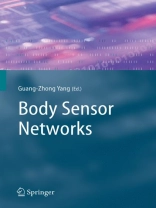Advances in science and medicine are closely linked; they are characterised by episodic imaginative leaps, often with dramatic effects on mankind and beyond. The advent of body sensor networks represents such a leap. The reason for this stems from the fact that all branches of modern medicine, ranging from prevention to complex intervention, rely heavily on early, accurate, and complete diagnosis followed by close monitoring of the results. To date, attempts at doing this consisted of intermittent contact with the individual concerned, producing a series of snapshots at personal, biochemical, mechanical, cellular, or molecular levels. This was followed by making a series of assumptions which inevitably resulted in a distortion of the real picture. Although the human genome project has shown that we are all “equal”, it confirmed the fact that each one of us has unique features at many levels, some of which include our susceptibility to disease and a particular response to many external stimuli, medicines, or procedures. This has resulted in the concept of personalised medicines or procedures promised to revolutionise our approach to healthcare. To achieve this, we need accurate individualised information obtained at many levels in a continuous fashion. This needs to be accomplished in a sensitive, respectful, non-invasive manner which does not interfere with human dignity or quality of life, and more importantly it must be affordable and cost-effective.
Inhoudsopgave
Biosensor Design and Interfacing.- Protein Engineering for Biosensors.- Wireless Communication.- Network Topologies, Communication Protocols, and Standards.- Energy Scavenging.- Towards Ultra-Low Power Bio-Inspired Processing.- Multi-Sensor Fusion.- Context-Aware Sensing.- Autonomic Sensing.- Wireless Sensor Microsystem Design: A Practical Perspective.- Conclusions and Future Outlook.












